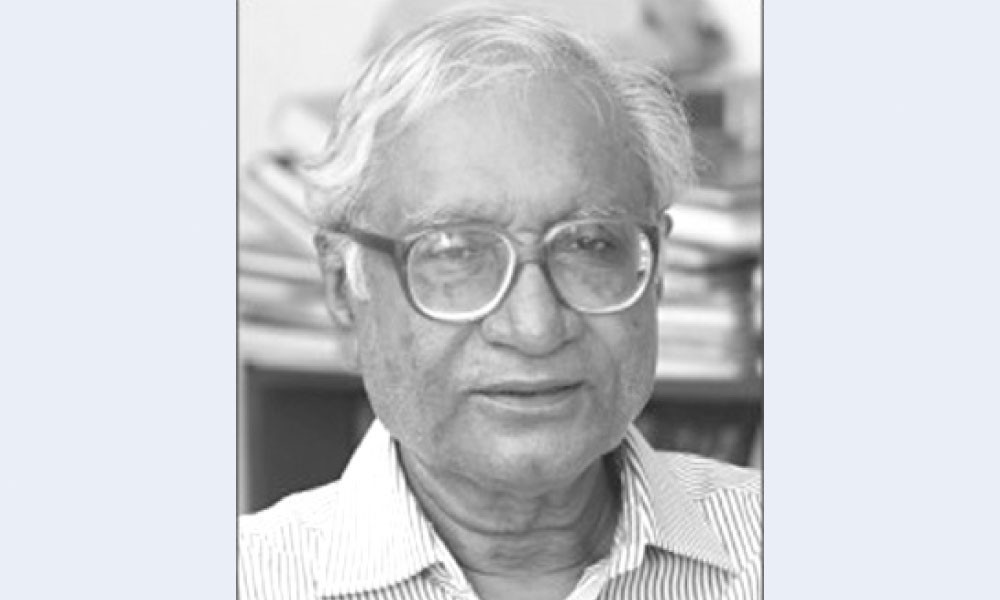
Anandashankar Roy once remarked in his book Banglar Renaissance that "the refined language of the enlightened citizen is like vitamin-deprived, overcooked, strained rice—it lacks both taste and nutrition."
While the Bengali Renaissance sparked many transformations, it failed to bridge the gap between the elite and the working class. One of the starkest manifestations of this divide is the language barrier.
Rabindranath Tagore and Pramatha Chaudhuri made efforts to bring literary language closer to spoken language, but their impact remained limited. Literary language retained its distinctiveness and became the refined dialect of the elite. Attempts by figures like Pyarichand Mitra and Kaliprasanna Singha to popularize colloquial speech in literature failed to gain traction, as the educated class kept their language separate from that of the common people.
Recently, a senior writer used sensational language in a Lawrence-esque style, causing a stir. While such language might create shock value for some, it will not change the fundamental nature of language. These words, like hailstones, will melt away as soon as they hit the ground.
It is often said that the English language created an unprecedented social divide in this region. While this is partly true, language alone is not to blame. The actual divide is socio-economic, and language has merely highlighted it rather than being the sole cause. The persistence of English dominance stems from the fact that this social gap remains unbridged. Even if, by some miracle, all educated Bengalis spoke only pure Bengali, class divisions between the educated and uneducated, the rich and the poor, would still persist. Language does not shape society—society shapes language.
Anandashankar Roy observed that literary language remains disconnected from the masses because "those who write are gentlemen, and those who read are also gentlemen; thus, writing is done in the polished language of the elite." He further asserted that turning a gentleman into a laborer is impossible unless they are imprisoned and forced into hard labor, or unless the entire nation becomes a prison—essentially, a proletariat dictatorship.
In a way, we are all pulling the metaphorical grinding mill. Ask any gentleman, and he will lament his exhaustion. He might even compare his life to that of a prisoner, minus the uniform. Yet, this "grinding mill" is far removed from actual hardship. In moments of pride, these same individuals engage in a competition to prove their level of independence.
The truth remains: the social divide will not disappear. As time passes, our busyness increases. While laborers may experience unemployment and struggle to find work, the elite remain occupied—regardless of whether their work is truly productive. It is safe to say that all gentlemen work, yet they secretly despise their labor. Interestingly, in this particular aspect—hating work—both laborers and the elite share common ground. After all, every worker aspires, deep down, to be a gentleman. If labor were truly respected, the elite would lose their cultural status.
Providing employment remains a critical challenge. The unemployment crisis is worsening, and many parents live in constant anxiety over how to keep their children engaged. Despite financial stability, the lingering question of what their children will do haunts them.
Anandashankar Roy noted that turning gentlemen into laborers would require a proletariat dictatorship. Fortunately, his remark carried a hint of irony; otherwise, he might have been exiled from elite circles. What, then, is the alternative? Democracy. He believed that what the Renaissance failed to achieve, a mass awakening could accomplish. But how will such an awakening come? Through democracy.
However, faith in democracy is waning. Observing the state of democracy in the Third World, even the staunchest believers might lose hope.
Social inequality remains a reality and will persist. Even with impending salary increases for government employees, this divide will not shrink—it will only widen. The rising cost of goods concerns daily wage laborers far more than the elite. Conversations about these issues occur within privileged circles, but they do not change the fundamental reality.
There is debate over whether a true renaissance ever occurred in this country, but various upheavals have certainly taken place. There are predators lurking—both tigers and giant rats. As poet Biren Chattopadhyay wrote, "The mountains tremble with labor pains—soon, millions of giant rats will be born, far more terrifying than man-eating tigers." Both the tigers and the rats exist, just as their victims do.
Language does not only carry the sound of refinement; it also echoes the growl of teeth. Beware, it might bite.
And as for the remark that language is like "vitamin-deprived, overcooked, strained rice"—the real issue is not the taste of rice but the fact that many people cannot afford to eat it. The fundamental divide lies there: some eat, others do not.
The writer is Emeritus Professor, University of Dhaka

